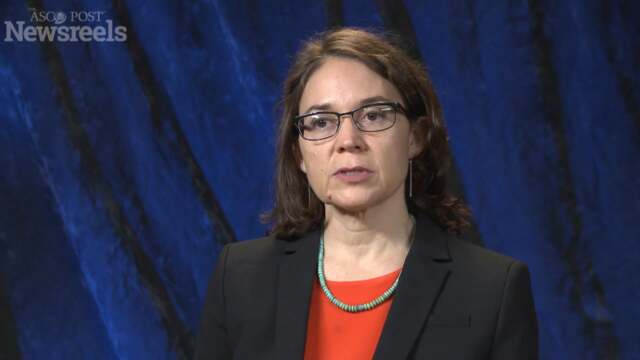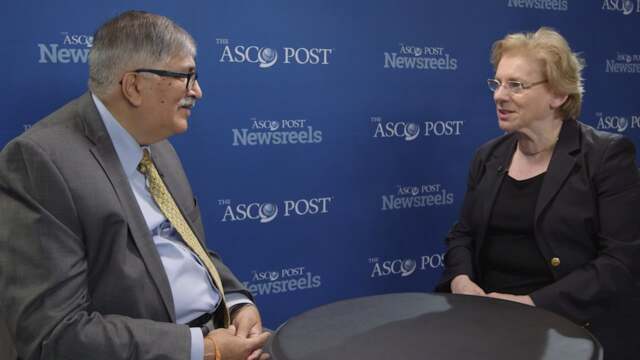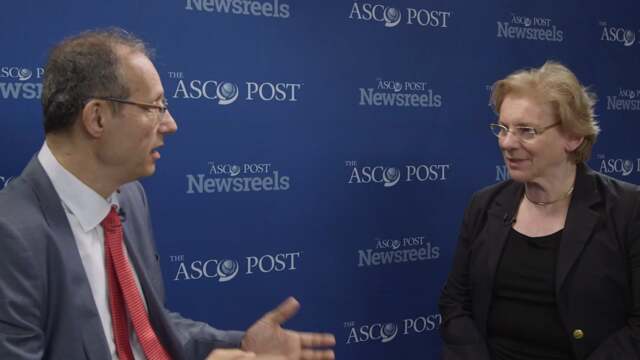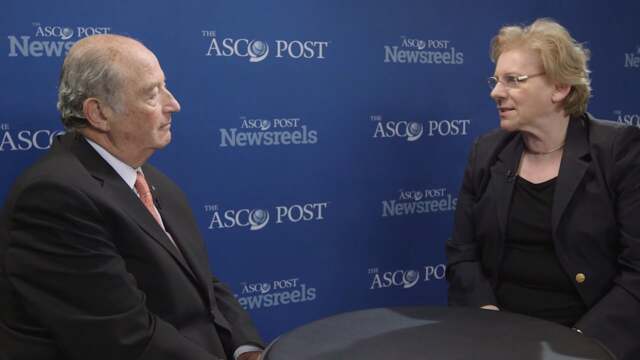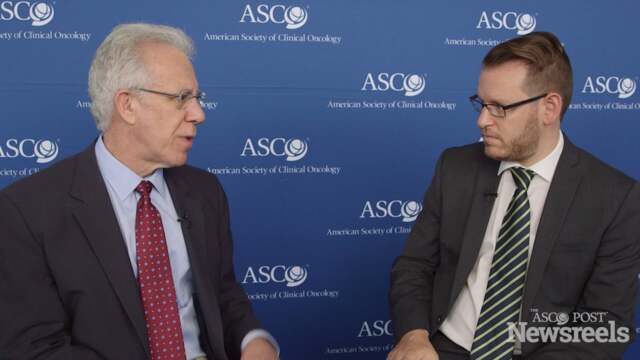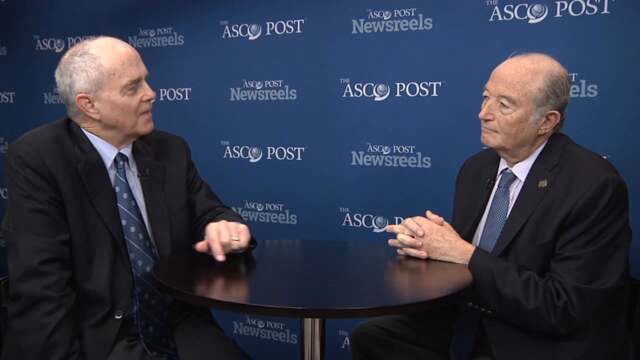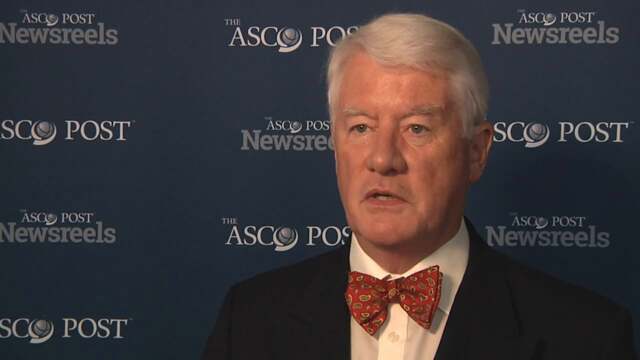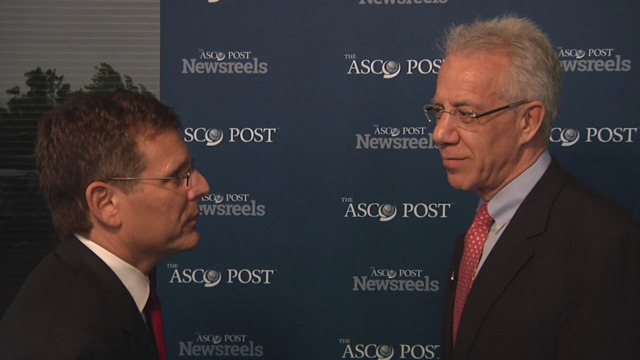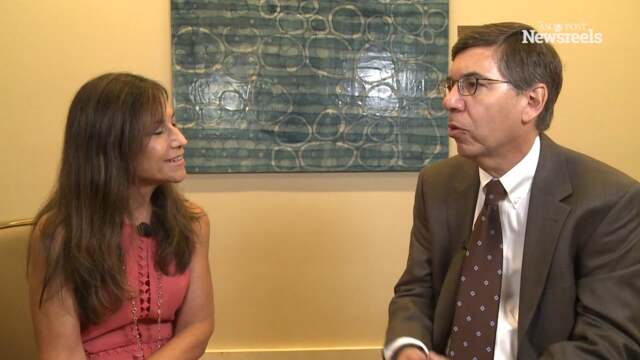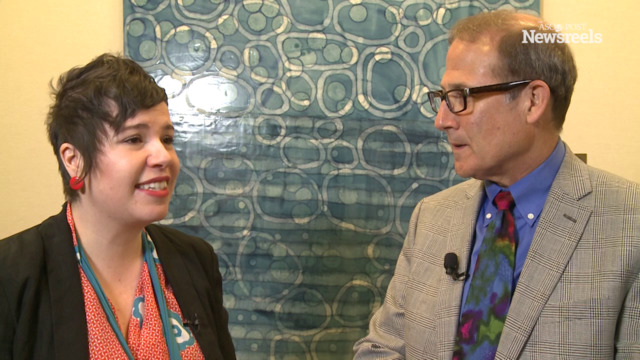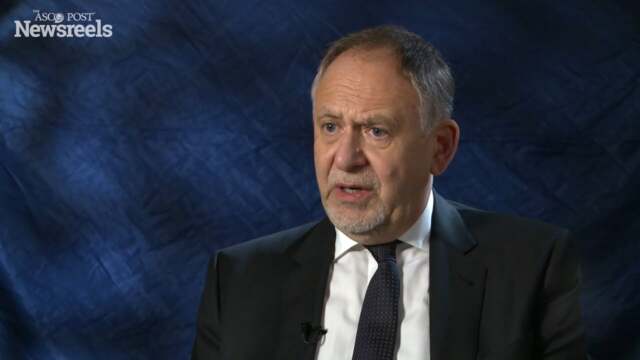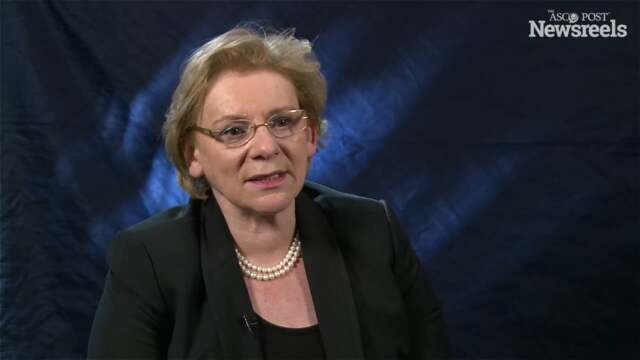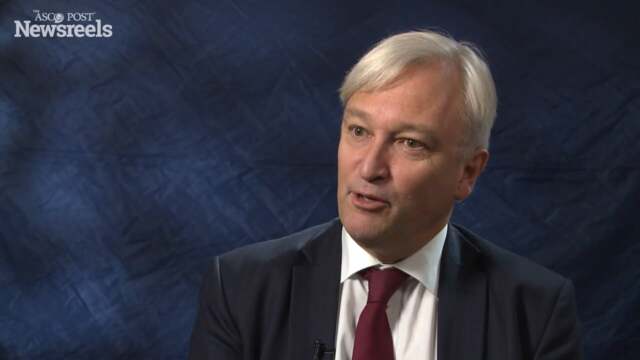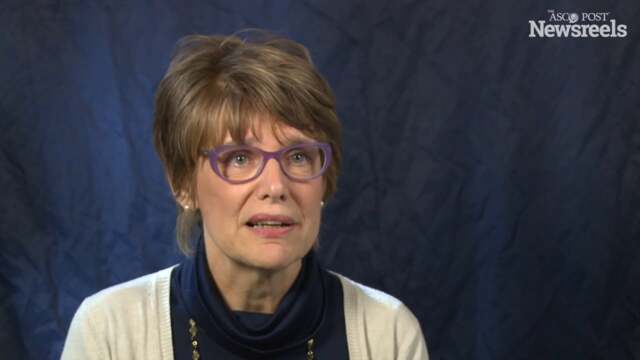Peer-Reviewed Indian Journal of Surgical Oncology Meets Challenges, Succeeds in Developing Country
Launching a new cancer journal is a risky and arduous endeavor, especially for a specialty publication in resource-challenged countries in the developing world. To succeed, a specialty journal must publish articles from established clinical researchers that quickly garner funding and captivate its...
Cancer on the Global Stage: Incidence and Cancer-Related Mortality in Albania
The ASCO Post is pleased to present this special focus on the worldwide cancer burden. The aim of this special feature is to highlight the global cancer burden for various countries of the world. For the convenience of the reader, each issue will focus on one country from one of the six regions of ...
Baylor and Texas Children’s Hospital Partner to Bring Fellowship Training in Oncology and Hematology to East Africa
Medical students and practicing pediatricians in Uganda and other East African countries lack access to specialty pediatric training and education in oncology and hematology in their region, despite the need for doctors to provide care for patients with cancer and blood disorders. A new program of...
ASTRO 2016: Unmet Need for Radiation Therapy Found Among Nearly Half of Eligible Cancer Patients in Nine Developing Countries
Although approximately 50% of cancer patients in developing countries need radiation therapy to treat their disease, up to half of these patients do not have access to it, according to research presented by Rosenblatt et al at the 58th Annual Meeting of the American Society for Radiation Oncology...
Emily Haozous, PhD, RN, on Cultural Differences in End-of-Life Care
Emily Haozous, PhD, RN, of the University of New Mexico, discusses health disparities and cultural differences in palliative and end-of-life care, with case study examples drawn from American Indian communities.
James F. Cleary, MD, on Global Access to Opioids
James F. Cleary, MD, of the University of Wisconsin Carbone Cancer Center, talks about the many reasons that 80% of the world’s population lacks access to opioids, the mainstay of cancer pain management.
Making a Difference in the Lives of Others
Quyen D. Chu, MD, MBA, FACS, this year’s recipient of ASCO’s Humanitarian Award, lives by the axiom that “One person can make a positive difference in the lives of others.” Although the term has become cliché, the experiences in Dr. Chu’s life and oncology career prove just how profound and...
Swiss Study Examines Cost-Effectiveness of Nivolumab vs Docetaxel in Advanced Nonsquamous NSCLC
Nivolumab, a checkpoint inhibitor approved for patients with squamous and nonsquamous non–small cell lung cancer (NSCLC) in 2015, is not cost-effective when compared to treatment with docetaxel, chemotherapy medication. However, a Swiss analysis showed the cost-effectiveness of nivolumab is...
Geriatric Oncology in Asia: The Dawn of a New Era in Cancer Care
Asia is currently experiencing an unprecedented rate of growth in its aging population. This “silver tsunami” has translated into a burgeoning number of older patients with cancer, as cancer is a disease of aging. However, unlike their Western counterparts, elderly patients with cancer in Asia are ...
European Demand for Radiotherapy Expected to Rise Approximately 16% Over Next Decade
The demand for radiotherapy across all European countries will increase by an average of 16% between 2012 and 2025, with the highest expected increase being for prostate cancer cases (24%), according to a new study published by Borras et al in Radiotherapy and Oncology.1 These projections came...
Vast Differences Globally in Cancer Drug Retail Prices
A pilot study revealed large differences in median retail prices for 23 cancer drugs in 7 different countries, with the highest retail prices identified in the United States and the lowest, in India and South Africa. Notably, after the monthly drug price is expressed as a percentage of domestic...
Rising Breast Cancer Incidence in Sub-Saharan Africa: Challenges and Opportunities
The incidence of new cases of breast cancer in low- and middle-income countries, particularly in sub-Saharan Africa, is rising, and it will take a concerted effort from the international cancer community to counteract this troubling upward trend. It has been estimated that of the 15 million cancer ...
Rakesh Chopra, MD, and Mary Gospodarowicz, MD, on The Indian Perspective of the Current State of Cancer Research and Treatment
Rakesh Chopra, MD, of the Artemis Health Institute, and Mary Gospodarowicz, MD, of Princess Margaret Hospital, discuss oncology from an international point of view.
Nagi S. El-Saghir, MD, PhD, and Mary Gospodarowicz, MD, on The Middle Eastern Perspective of Cancer Research
Nagi S. El-Saghir, MD, of the American University of Beirut, and Mary Gospodarowicz, MD, of the Princess Margaret Hospital, discuss oncology from an international point of view.
Eduardo L. Cazap, MD, PhD, and Mary Gospodarowicz, MD, on The South American Perspective of Cancer Research
Eduardo L. Cazap, MD, PhD, of the Latinamerican & Caribbean Society of Medical Oncology, and Mary Gospodarowicz, MD, of the Princess Margaret Hospital, discuss oncology from an international point of view.
ASCO 2016: Vast Differences Globally in Cancer Drug Retail Prices
A pilot study revealed large differences in median retail prices for 23 cancer drugs in 7 different countries, with the highest retail prices identified in the United States and the lowest, in India and South Africa. Notably, after the monthly drug price is expressed as a percentage of domestic...
Lawrence N. Shulman, MD, and Daniel A. Goldstein, MD: Expert Perspectives on Issues in Global Cancer Care
Lawrence N. Shulman, MD, of Abramson Cancer Center at the University of Pennsylvania, and Daniel A. Goldstein, MD, of the Rabin Medical Center, discuss global challenges in cancer care, including treating patients in areas lacking resources, and cancer drug price disparities (Abstract LBA6500).
A Perilous Time for Refugees With Cancer
The numbers are difficult to fathom. According to a report by the United Nations High Commissioner for Refugees (UNHCR), in 2015, over 60 million people worldwide were forcibly displaced as a result of conflict, persecution, generalized violence, or human rights violations.1 Over 9 million of those ...
Oncology and Diplomacy in the Middle East
The Middle East is a vast region comprised largely of developing nations with complicated sociopolitical challenges, violent internecine disputes, and deeply fragmented health-care systems. Not surprisingly, the region’s suboptimal health care contributes to the late diagnosis and poor survival...
Cancer on the Global Stage: Incidence and Cancer-Related Mortality in Israel
The ASCO Post is pleased to continue this special feature on the worldwide cancer burden. In this issue, we feature a close look at the cancer incidence and mortality rates in Israel. The aim of this special feature is to highlight the global cancer burden for various countries of the world. For...
Unique Fellowship Aims to Lessen Global Cancer Burden by Training Foreign Medical Graduates in Surgical Oncology
Many low- and middle-income countries do not have a defined medical specialty in surgical oncology, and lack an educational infrastructure to respond to the local burden of cancer, but a Memorial Sloan Kettering Cancer Center (MSKCC) fellowship is succeeding in addressing this problem by training...
The Time Is Now for the Worldwide Cancer Community to Be Proactive
The ASCO Post recently spoke with nationally recognized surgical oncologist Chandrakanth Are, MBBS, MBA, FRCS, FACS, Jerald L & Carolynn J. Varner Professor of Surgical Oncology & Global Health; Vice Chair of Education; and Program Director, General Surgery Residency, University of Nebraska ...
Site of Death, Health-Care Utilization, and Hospital Expenditures for Patients Dying With Cancer in Developed Countries
In a study reported in JAMA, Bekelman et al assessed the site of death, health-care utilization, and hospital expenditures among patients aged ≥ 65 years dying with cancer in Belgium, Canada, England, Germany, the Netherlands, Norway, and the United States. The United States had lower...
Study Finds 36% Increase in Number of Male Smokers in India Over 17 Years
The number of men smoking tobacco in India rose by more than one third to 108 million between 1998 and 2015, according to a new study published in the journal BMJ Global Health. The study also found that cigarettes were replacing the traditional bidi, a small, inexpensive Indian cigarette,...
Tony Mok, MD, and James O. Armitage, MD, on The Current State of Cancer Research and Treatment: The Asian Perspective
James O. Armitage, MD, of the University of Nebraska Medical Center, and Tony Mok, MD, of The Chinese University of Hong Kong, discuss oncology from an international point of view.
Eduardo Cazap, MD, PhD, and James O. Armitage, MD, on The Current State of Cancer Research and Treatment: The Latin American Perspective
Eduardo Cazap, MD, PhD, of the Latin American & Caribbean Society of Medical Oncology, and James O. Armitage, MD, of the University of Nebraska Medical Center, discuss oncology from an international point of view.
John Smyth, MD, on The Current State of Cancer Research and Treatment: The European Perspective
John Smyth, MD, of the University of Edinburgh, discusses oncology from an international point of view.
Lawrence N. Shulman, MD, and Clifford A. Hudis, MD, on Cancer Care in Resource-Challenged Areas
Lawrence N. Shulman, MD, of Dana-Farber Cancer Institute, and Clifford A. Hudis, MD, of Memorial Sloan Kettering Cancer Center, discuss the delivery of cancer care in resource-constrained settings such as Rwanda and Haiti, and plans to conduct research in basic tumor biology of patients in these areas.
Irene Higginson, MD, on Palliative and End-of-Life Care: An International Perspective
Irene Higginson, MD, of Cicely Saunders International, discusses the goals of psychosocial palliative care for patients around the world with advanced cancer.
Lori Wiener, PhD, DCSW, LCSW-C, and Paul B. Jacobsen, PhD, on IPOS-APOS Themes of This Year’s Meeting
Lori Wiener, PhD, DCSW, LCSW-C, of the National Cancer Institute, and Paul B. Jacobsen, PhD, of the Moffitt Cancer Center, discuss the highlights of this year’s meeting, which for the first time brings together the international and American psychosocial oncology societies.
Bradley J. Zebrack, PhD, and Ursula Sansom-Daly, PhD, on Global Psychosocial Standards of Care for Adolescents and Young Adults With Cancer
Bradley J. Zebrack, PhD, of the University of Michigan School of Social Work, and Ursula Sansom-Daly, PhD, of the University of New South Wales, talk about providing supportive care services that meet the unique needs of adolescents and young adults with cancer.
Christoph Zielinski, MD: Highlights of 2015 European Cancer Congress
As Chair of the ECC Local Organizing Committee, Christoph Zielinski, MD, of the Medical University Vienna - General Hospital, shares his thoughts on the important goals and presentations of the 2015 Congress.
Mary K. Gospodarowicz, MD, on Challenges in Cancer Control
Mary K. Gospodarowicz, MD, of Princess Margaret Hospital, discusses the work of the Global Task Force on Radiotherapy for Cancer Control and its efforts to improve access to vital radiation treatment worldwide, especially in low- and middle-income countries.
Looking Ahead With the New ECCO President: Peter L. J. Naredi, MD, PhD
Incoming ECCO President, Peter L. J. Naredi, MD, PhD, of the University of Gothenburg, discusses his upcoming year as the new ECCO President, his vision for the organization, and his views on cancer treatment today.
Milena Sant, MD, on The Latest Findings From the EUROCARE 5 Study
Milena Sant, MD, of Istituto Nazionale dei Tumori, discusses the question of whether Europe is doing better in cancer care since the 1990s (Abstract LBA1).
Cancer Incidence in Indigenous People in Australia, New Zealand, Canada, and the United States
In a population-based study reported in The Lancet Oncology, Suzanne P. Moore, PhD, of Charles Darwin University, Northern Territory, Australia, and colleagues compared cancer incidence in indigenous people in Australia, New Zealand, Canada, and the United States with the incidence in nonindigenous ...
Cancer on the Global Stage: Incidence and Cancer-Related Mortality in Afghanistan
The ASCO Post is pleased to introduce this special focus on the worldwide cancer burden, beginning in this issue with a close look at the cancer incidence and mortality rates in the United States. The aim of this special feature is to highlight the global cancer burden for various countries of the...
A Prominent Oncologist Retraces Her Steps from Baghdad
Maha Hussain, MD, FACP, Professor of Medicine and Urology, is the Associate Director for Clinical Research at the University of Michigan Comprehensive Cancer Center (UMCCC) and Co-leader of its Prostate Cancer/GU Oncology program. Dr. Hussain recently spoke with The ASCO Post about becoming a...
Cancer Care in the UK: A Conversation with Chris Parker, MD
In the contentious debate over rising health-care spending, the cancer care policies of the British National Health Service (NHS) are often cited by U.S. policymakers as an example of how health-care rationing denies patients life-prolonging treatments based on costs. The ASCO Post recently spoke...
Treating Cancer in Japan: A Conversation with Kensei Tobinai, MD
In this installment of Oncology Worldwide, internationally regarded lymphoma expert and cancer survivor, Kensei Tobinai, MD, Chief, National Cancer Center Hospital, Tokyo, sheds light on the Japanese oncology experience. Medical Education What was the medical school experience in Japan like? When...
Tobacco Remains the Dominant Global Risk Factor Underlying Cancer
Despite clear evidence that tobacco causes at least 18 types of cancer, as well as many other diseases, many people all over the world smoke or chew tobacco, or are exposed to secondhand smoke. Although smoking among Americans has declined slowly but steadily over the past 40 years, it remains the...
Lessons from a Northern Neighbor: A Conversation with Joseph M. Connors, MD
Policy analysts searching for a better understanding of health-care models often compare the cancer delivery systems of Canada and the United States. The ASCO Post recently spoke with Joseph M. Connors, MD, Clinical Professor and Director of the BC Cancer Agency’s Centre for Lymphoid Cancer,...
Inefficient Markets Impede Cancer Pain Relief
The potent analgesic property of morphine was first isolated in 1804, and after more than 2 centuries morphine is still the gold standard for moderate to severe pain. It is relatively easy to produce, and compared to most pharmaceuticals, morphine is dirt-cheap. Therein lies the cruel conundrum:...
Untreated Cancer Pain Remains a Significant Global Problem
“Physicians are afraid of morphine … Doctors [in Kenya] are so used to patients dying in pain … they think that this is how you must die. They are suspicious if you don’t die this way — [and feel] that you died prematurely.” —Human Rights Watch interview with Dr. John Weru of Nairobi Hospice,...
Cancer Care in India: Complex Challenges in a Populous Nation
With 1.22 billion people, India is the second most populous country in the world. Experts project that cancer incidence in India will increase by more than two-thirds over the next 20 years, to approximately 1.7 million new cases per year. Due to a range of economic and social issues, most of...
Breast Cancer and Noncommunicable Diseases: Where in the World Do We Start?
As the world’s most common cancer among women, and the most likely reason around the globe that a woman will die of cancer, breast cancer affects countries at all economic levels. Despite the common misconception that breast cancer is primarily a problem of high-income countries, the majority of...
Cancer Care in Rwanda: A Model of Creative Partnerships
While disparities in cancer care remain problematic in wealthy industrial nations like the United States, the challenges faced in poorer regions of the world are, by comparison, inestimable. Nationally regarded health-care expert Lawrence N. Shulman, MD, of Dana-Farber Cancer Institute, is part of...
Despite Challenges, Initiatives Bring Gradual Improvements to Cancer Care in Lebanon
Nagi S. El Saghir, MD, FACP, Professor of Clinical Medicine and Hematology-Oncology at the American University of Beirut, is the founding President of the Lebanese Society of Medical Oncology (LSMO). Dr. El Saghir has focused much of his research on the early detection, prevention, and treatment of ...
Viral Infection and Liver Cancer: A Global Health Crisis
It is estimated that at least 15% of all cancers worldwide can be attributed to infectious etiologies, mostly viral infections. At this year’s ASCO Annual Meeting, an intriguing session on virally induced cancers provided critical clues that could be of real practical value in advancing our battle...
International Members Cite Networking, Enhanced Patient Care Among Benefits of ASCO Membership
Thanks to the membership category ASCO designed for physicians in developing countries, Brazilian oncologist Milena Mak, MD, can greatly enhance the care she delivers in the very busy 580-bed Instituto do Cancer do Estado de Sao Paulo. And radiation oncologist Pooja Nandwani Patel, MD, can use the...
